"Smart TVs" are bringing PC-style spyware and banner ads to the living room, collecting detailed logs of data that include every time the channel is changed and the names of every media file watched. In the case of sets from LG, data is being sent to the factory unencrypted, even after users attempt to turn the data collection off.
A report by blogger "DoctorBeet" from the UK detailed an option (above) on an LG Smart TV for "collection of watching info," which a network packet analysts indicated continues to collect and report data even after being turned off.
Using Wireshark, a network utility to monitor local network traffic, the user found his Smart TV was transmitting a unique device ID listing the names of programs he watched, noting that "this information appears to be sent back unencrypted and in the clear to LG every time you change channel."
The LG Smart TV was also found to the post names of media files he played from an external USB stick. LG has previously depicted USB file playback as a way to watch pirated movies, portraying in a TV manual (below) a listing of files ripped from DVD, including The Aviator and Pixar's The Incredibles as reported by Torrent Freak.
"It would easily be possible to infer the presence of adult content or files that had been downloaded from file sharing sites," he wrote. "My wife was shocked to see our children's names being transmitted in the name of a Christmas video file that we had watched from USB."
He wrote to LG's UK help desk and "asked them to comment on data collection, profiling of their customers, collection of usage information and mandatory embedded advertising on products that their customers had paid for," and reported the following response from the company:
"Good Morning. Thank you for your e-mail. Further to our previous email to yourself, we have escalated the issues you reported to LG's UK Head Office.
The advice we have been given is that unfortunately as you accepted the Terms and Conditions on your TV, your concerns would be best directed to the retailer. We understand you feel you should have been made aware of these T's and C's at the point of sale, and for obvious reasons LG are unable to pass comment on their actions.
We apologise for any inconvenience this may cause you. If you have any further questions please do not hesitate to contact us again. Kind Regards,
Tom
LG Electronics UK Helpdesk"
Readers commenting on the report note that such behaviors may be subject to provisions of the UK Data Protection Act that restrict data collection, as well being as a "serious breach of EU Directive 95/46 on Data Protection."
LG pitches Google-style web ads at TV advertisers
LG Electronics, known as Lucky-Goldstar until 1995 and now Samsung's primary rival in South Korea, profiles its "LG Smart Ad" advertising platform to potential advertisers in an online video that states:
"LG Smart Ad analyzes users favorite programs, online behavior, search keywords and other information to offer relevant ads to target audiences. For example, LG Smart Ad can feature sharp suits to men, or alluring cosmetics and fragrances to women!
"Furthermore, LG Smart Ad offers useful and various advertising performance reports — that live broadcasting ads cannot— to accurately identify actual advertising effectiveness."
The video then depicts ads capable of targeting not only its Smart TV and BluRay players, but also the firm's LG Smart Refrigerator, "and more."
The video specifically portrays advertising from State Farm insurance, Hyundai's Santa Fe vehicle and McDonalds, and outlines that ads portrayed on the Smart TV's home screen are found to "grab the most attention" in eye tracking tests "since the home screen is the first thing users see on Smart TVs."
The company promotes the fact that its Smart TV uses the same size and shape of ad banners as web pages, allowing advertisers to reuse their existing internet advertising on Smart TV navigation screens, including the device's search results and "Smart World" and "Game World" TV app markets.
LG's Smart TV is also described as adding pre-roll and post-roll ads to "target audiences" when users attempt to watch videos, following the model of Google's advertising in YouTube.
A spokesperson for the company in the video states, "this is more about quality of view," explaining that with a Smart TV, "the relaxed person or family" offers a "different level of experience for audience and different level of value to marketers."
The video concludes with a voiceover line that appears to be borrowed from a movie portraying a dystopian future:
"LG Smart ad brings compelling and more effective ads to you on a larger scale! Keep your eyes open for a smarter lifestyle made possible by LG Smart Ads. LG Smart Ad: making the world smarter!"
The video ends with the title text: "From brand awareness to customer interaction LG Smart Ad brings them all to your reality."
LG further details its ad program on a website that boasts, "LG Smart AD offers real-time reporting that enables publishers to intuitively view and analyze the ad performance of the publications. The report is all time accessible through Seller Lounge, which is Smart TV application management portal. Its global settlement system ensures publishers' payments to be delivered anywhere in the world."
LG sees no future use for Android on TV
Despite being a significant Android licensee in smartphones and an initial partner in the ill-fated Google TV initiative, LG has, since its acquisition of Palm's webOS from HP, distanced itself from a reliance upon Google in the TV space, choosing instead to blaze its own trail into TV ad revenue.
This summer, LG's director of Smart TV content Matthew Durgin, when asked at a tech conference if Android would play a role in the company's future TV sets, answered, "Not that I can see, to be frank with you. I think that LG's TV platform has evolved to the point where it's become a very strong differentiator for us in the market."
Citing the February purchase of webOS from HP, Durgin said LG now has "a development team in Silicon Valley who's developing for the 2014 platform using webOS."
Industry watching TV
While borrowing the "smart" label from the smartphone industry, Smart TVs haven't been a huge hit with consumers. Samsung, Google and Microsoft are all pursuing the market with devices that attempt to deliver relevant, valuable advertising achieved through following viewer's behaviors.
Apple TV, in contrast, has aimed more at selling content subscriptions and media purchased from iTunes, streamed from iCloud or beamed with AirPlay without adding any advertising or presenting banner ads on the home screen or throughout its navigation pages.
With iTunes Radio, available on Macs, iOS 7 devices and Apple TV, Apple has embarked upon more conventional radio-style advertising that can be avoided with an iTunes Match subscription, an extension of Apple's iAd program.
In 2010, at the release of iOS 4, Steve Jobs outlined iAd as a new way to help monetize free apps, noting that "people aren't searching on a mobile device like on a desktop," one of the first public hints describing how Post PC devices would differ from the PC model created by Microsoft in the 1990s.
Rather than trying to replicate the banner ad experience of the web, Jobs outlined iAd as an effort to present a new type of interactive advertising that didn't simply take users to a web page but created an immersive environment for relating to a brand or exploring a product, an experience that was inviting, optional and easy to escape from.
 Daniel Eran Dilger
Daniel Eran Dilger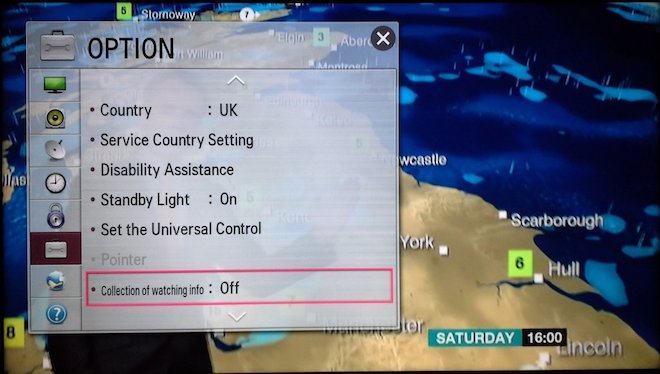
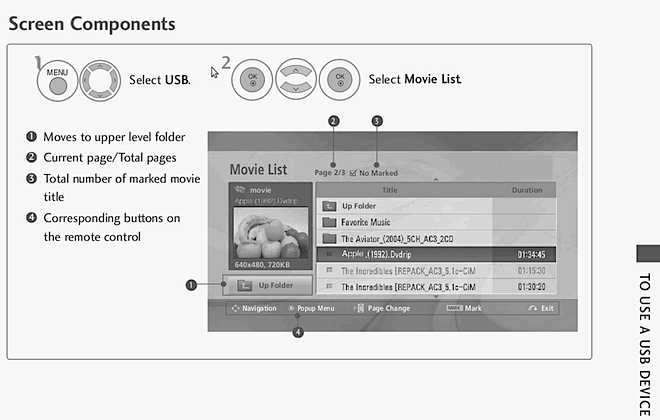
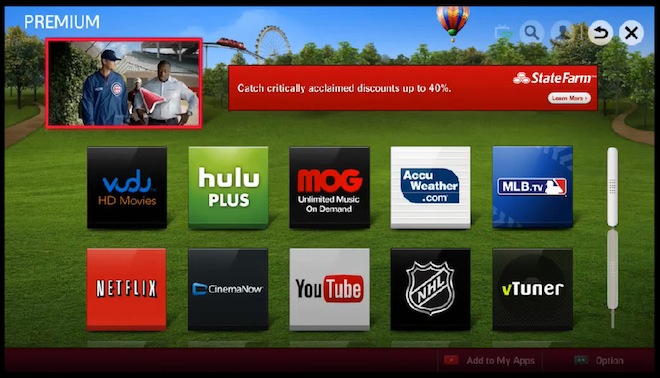







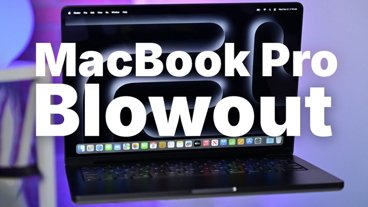
-m.jpg)






 Malcolm Owen
Malcolm Owen
 Amber Neely
Amber Neely
 William Gallagher
William Gallagher



 Oliver Haslam
Oliver Haslam
 Thomas Sibilly
Thomas Sibilly

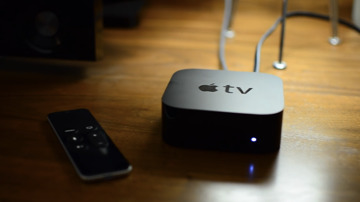
-m.jpg)






76 Comments
This is why TVs should be as stupid as possible. Let the little box connected to them manage everything. At least you can trust it.
One day (hopefully soon), the spying that Apple's competitors (Amazon, Google, LG, etc) engage in will blow up in their face. I respect Apple precisely because they make money by selling "things" (devices, media, apps) and not trolled data of users.
[quote name="Tallest Skil" url="/t/160820/lgs-smart-tv-watches-you-spyware-ads-report-your-behavior-in-creepy-detail#post_2437736"]This is why TVs should be as stupid as possible. Let the little box connected to them manage everything. At least you can trust it. [/quote] I somewhat agree with you but I must say the worst part about the television experience, for me, is having to pull out the TV remote just to change the input if I want to use another device like the Apple TV. I think the Xbox One is on the right track with the HDMI pass through. Either the TV needs to be completely stupid so it's just a large monitor or needs to be really smart, but whatever it is having to switch inputs manually to change devices is a complete fail for me. If Apple's recent acquision is any indication I'd think it would have to be integrated into the TV's border for it meet Apple's aesthetic guidelines, not simply an accessory you stick somewhere with a cable dangling to another device. They could make the light hardwired so that when any cameras are on the light is on, like they do with their Macs, but they don't do this with their microphones (and I wish they would).
Gaming this system in order to skew results has probably already begun. It should be a simple matter to send contrived data to LG so that its reports show a given product, politician or idea is wildly popular when, in fact, it is not. Consumers may want to hack their TVs so as to be able to actually turn this spigot of info off or, perhaps more practically, install a device that filters all upstream data or provides the consumer with greater control.
I think the same argument for why TV/DVD/VCR combos never really took off could be made for smart TVs. One part breaks and the whole thing is useless. How many of us had TV/VCR combos with a second VCR hooked into it? I have a Vizio smart TV and the apps are TERRIBLE. Netflix is extremely outdated and slow, not to mention all the bloatware that comes on it, it takes a full 20 seconds for the thing to turn on. I've disabled the TV's internet connection and it runs a little faster, but still not great. I see a need for separation of smart apps and tv. This is why i hope apple never makes a true Apple TV. Gotta keep it separated!